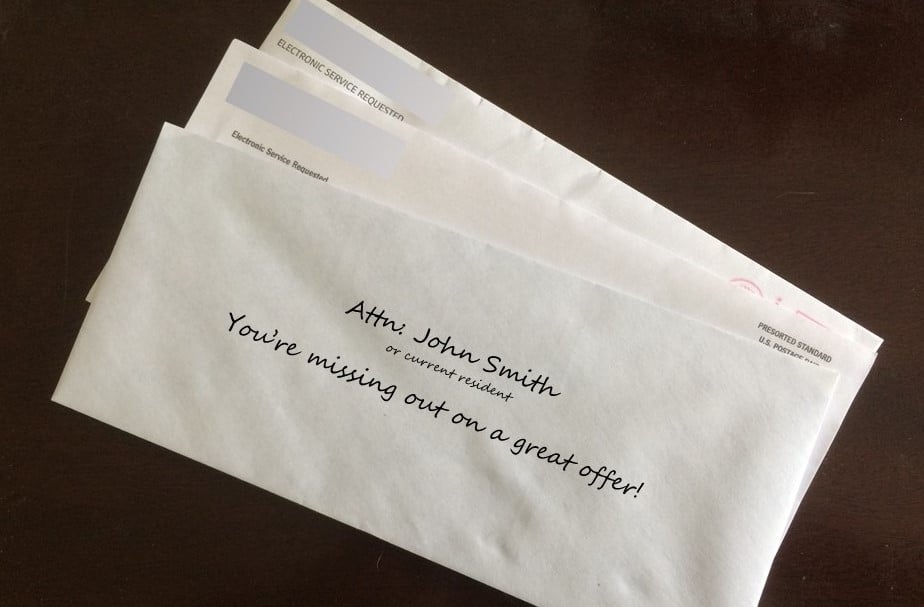Fight the temptation to cram a lot of information into your emails when you’re prospecting. I know it might be hard. I’ve heard plenty of people argue that they should be doing that: to tell their full story, to show value, to explain all that they have to offer, or to better vet their recipients to make sure they’re really worth talking to.
While that might sound like it makes sense at first, that’s a lot of pressure for a single email. It’s no wonder that when they send those whoppers out to thousands of people and don’t get any responses, they think the system must not work or that they aren’t targeting the right audience.
What they don’t realize is that their messages are getting stuck in spam filters because of the words they chose, or simply getting ignored because they look like every other email those prospects receive.
Think of it like you’re skimming through your regular postal mail. Unless you know the sender, how likely are you not to toss the rest in the trash—especially those that say “[Your name] or current resident”?

Pretty unlikely.
But don’t take my word for it. One study of 2 million users and 16 billion emails found that email replies were typically between 5 and 43 words. (For reference, my 3-sentence introduction up there is 63 words.) So if prospects are only sending short responses, why would you send them the email equivalent of a book chapter?
They need something easy to digest so that they can answer your question or find the right person to help you, and then they can move on to their other priorities. So the next time you get ready to message them and want to share that awesome case study you just posted, test their interest with a brief synopsis first before you share the entire copy.




